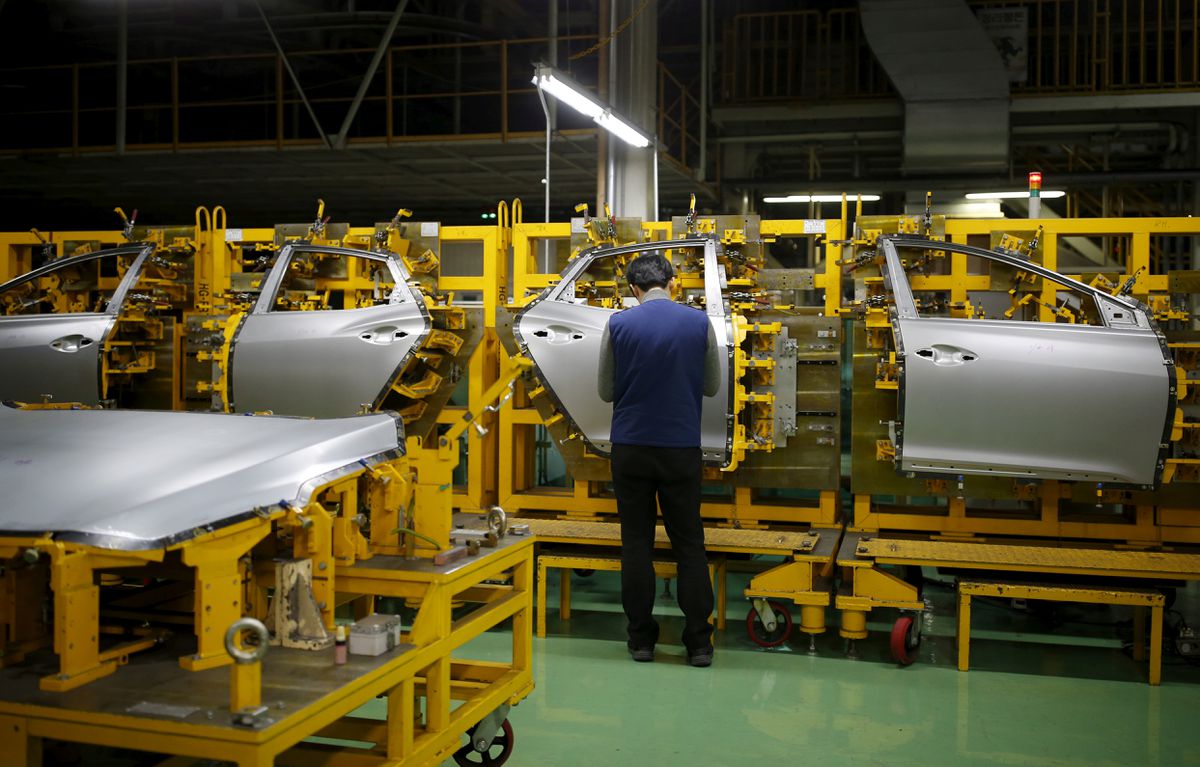
S.Korea’s factory activity growth slows as output shrinks for first time in 12 months
SEOUL, Sept 1 (Reuters) – South Korea’s factory activity grew at a slower pace in August, as output contracted for the first time in 12 months and demand eased due to surging coronavirus infections across the region and continued supply chain disruptions.
The IHS Markit purchasing managers’ index (PMI) for August stood at 51.2, falling from 53.0 in July but staying above the 50 threshold, which indicates expansion in activity, for an 11th straight month.
“A renewed rise in virus infections and severe, sustained supply chain disruptions, notably in the key semiconductor market, dampened operating conditions,” said Usamah Bhatti, economist at IHS Markit.
That resulted in a contraction in output levels, while the resurgence in coronavirus across the wider region partially offset solid demand from key export markets such as the United States and Japan, Bhatti added.
The sub-index for output stood at 49.1, ending the 11th consecutive month of expansion, and falling from 53.5 a month earlier.
Total new orders rose further last month, but at the softest pace in 10 months, while export orders growth also eased as the highly contagious Delta variant and related curbs dented global demand.
Still, firms were seen raising staffing levels for another month in preparation of incoming orders in the second half of the year.
Meanwhile, the survey signalled further rises in average cost burdens at South Korean manufacturers on continued raw material shortages, which led to higher output prices.
“Firms commonly noted that global shortages of raw materials and freight capacity, notably in the semiconductor market had led to weaker readings across the majority of indices,” Bhatti said.
“Yet businesses remained confident that this would pass, and activity would rise over the next 12 months.”
The sub-index for future output, which indicates business confidence, rose to 61.2 in August from 59.5 in July, on hopes of a wider economic recovery from the pandemic and that supply chain bottlenecks would ease.Reporting by Joori Roh
Our Standards: The Thomson Reuters Trust Principles.



